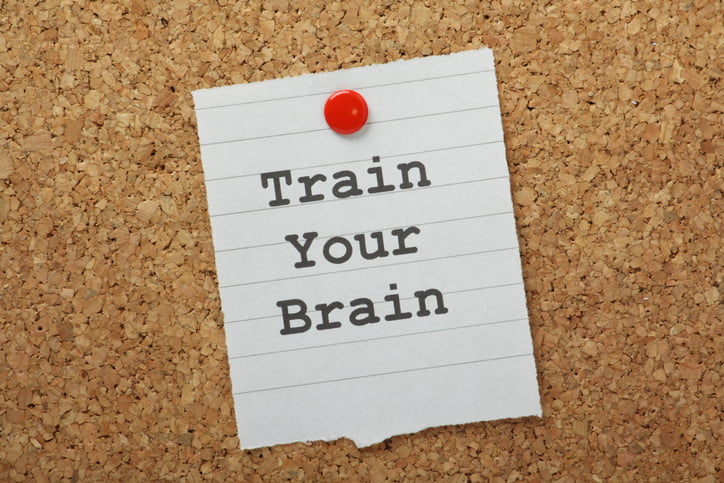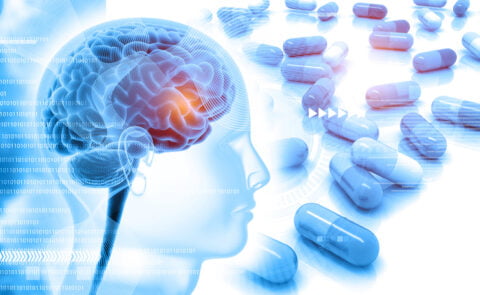Brain training has become a buzzword, promising to boost intelligence and memory. But does it work? The answer is: it can, but it depends and we can tell you how!
But what is brain training? Brain training is a mental exercise designed to improve cognitive abilities. It involves engaging in activities or programs that challenge and stimulate the brain, to enhance functions like:
- Memory: Remembering information and recalling it when needed.
- Attention: Focusing on specific tasks while filtering out distractions.
- Problem-solving: Analysing information and finding solutions.
- Decision-making: Evaluating options and making choices.
- Processing speed: How quickly you can think and react.
Think of it as going to the gym for your brain. Just like physical exercise strengthens your muscles, brain training aims to improve your mental abilities.

Brain Training vs. Mental Stimulation
Mental stimulation is any activity that engages your mind and prevents boredom. It’s a broad term encompassing a wide range of activities, from reading a book to learning a new language. While these activities are undoubtedly beneficial for brain health, they aren’t specifically designed to target and improve particular cognitive functions.
Brain training is a more focused approach. It involves exercises and activities specifically crafted to enhance specific cognitive abilities, such as memory, attention, problem-solving, and processing speed. Think of it as a targeted exercise for your brain.
To illustrate:
- Mental stimulation: Reading a novel, playing a musical instrument, or engaging in lively discussions.
- Brain training: Completing puzzles designed to improve memory, practising mindfulness to enhance focus, or using apps that challenge your problem-solving skills.
Both mental stimulation and brain training are valuable for brain health, but brain training offers a more direct path to improving specific cognitive functions.
By following these principles, you can harness the power of brain training to enhance your cognitive abilities and improve your quality of life.
Five key principles to effective brain training:
- Target specific brain areas: Focus on core brain functions like attention, memory, or processing speed. Rather than general brain exercises, identify specific cognitive skills you want to enhance.
- Identify your weaknesses: Pinpoint the areas where you need improvement for the most significant gains. Are you struggling with multitasking, remembering names, or solving puzzles? Knowing your weaknesses helps you choose the right training program.
- Consistent practice: Regular training is essential for long-lasting benefits. Just like physical exercise, brain training requires consistent effort. Aim for short but frequent training sessions.
- Progressive difficulty: Brain training should challenge you and gradually increase in complexity. To see real improvement, you need to push your cognitive limits. Look for programs that adapt to your performance and offer increasing difficulty levels.
- Real-world application: The ultimate goal is to improve everyday cognitive performance. Choose brain training programs that focus on skills relevant to real-life situations, such as better decision-making, problem-solving, or time management.
While the field of brain training is still evolving, there is promising research to support its effectiveness in specific areas:
- Working memory improvement: Studies have shown that training programs focusing on tasks like digit span or letter-number sequencing can enhance working memory capacity.
- Attention enhancement: Brain training games that require sustained focus, selective attention, or divided attention have demonstrated improvements in attention skills.
- Cognitive speed: Exercises that demand quick decision-making and response times have been linked to increased processing speed.
- Older adults and cognitive decline: Some research indicates that brain training programs can help slow cognitive decline in older adults and improve daily living activities.
It’s essential to note that the benefits of brain training are often specific to the trained skills. While improvements in a particular cognitive function might be observed, these gains may not necessarily transfer to other unrelated cognitive abilities.
How to Get Started
There are numerous ways to engage in brain training:
- Brain training apps and games: These offer structured exercises targeting specific cognitive skills resulting in improved and sharper memory, focus and attention.
- Puzzles and games: Crossword puzzles, Sudoku, chess, and card games can challenge your mind.
- Learning new skills: Acquiring new hobbies or languages stimulates the brain.
- Physical exercise: Regular physical activity has been linked to improved cognitive function.
- Social interaction: Engaging in conversations and social activities keeps the mind sharp.
- Mindfulness and meditation: These practices can improve focus and attention.
Remember: Consistency is key. Regular brain training can yield significant benefits over time, even for short periods.

Is your brain slowing down with age?
Keep your brain sharp with neuroscience-backed assessments and games. Take your first step today!
Engage in daily brain workouts, including a variety of puzzles, quizzes and games created to improve memory and attention. These brain development games are not just fun; they’re a step towards an active mind.
Download the Ivory App for 50+ brain games and much more.
Frequently Asked Questions
Brain training involves mental exercises designed to improve cognitive abilities like memory, attention, problem-solving, and decision-making. It’s similar to physical exercise for the brain, aiming to strengthen mental muscles.
Potential benefits include improved memory, enhanced attention, better problem-solving skills, faster processing speed, increased confidence, and potentially slowing down cognitive decline.
While brain games can be a fun way to stimulate the mind, brain training is more focused on improving specific cognitive functions. Brain training programs are often designed by cognitive scientists and psychologists to target particular brain areas.
There’s no concrete evidence that brain training directly increases IQ. However, it can enhance specific cognitive abilities, which can contribute to better problem-solving, decision-making, and overall cognitive performance.
While research is ongoing, some studies suggest that brain training might help slow cognitive decline in older adults. It’s important to combine brain training with a healthy lifestyle, including diet, exercise, and social interaction.
Yes, brain training can benefit people of all ages. However, individuals with specific cognitive impairments might require specialised programs.
The time it takes to notice improvements varies depending on the individual and the specific training program. Consistent practice is key, and you might start seeing benefits within a few weeks.




